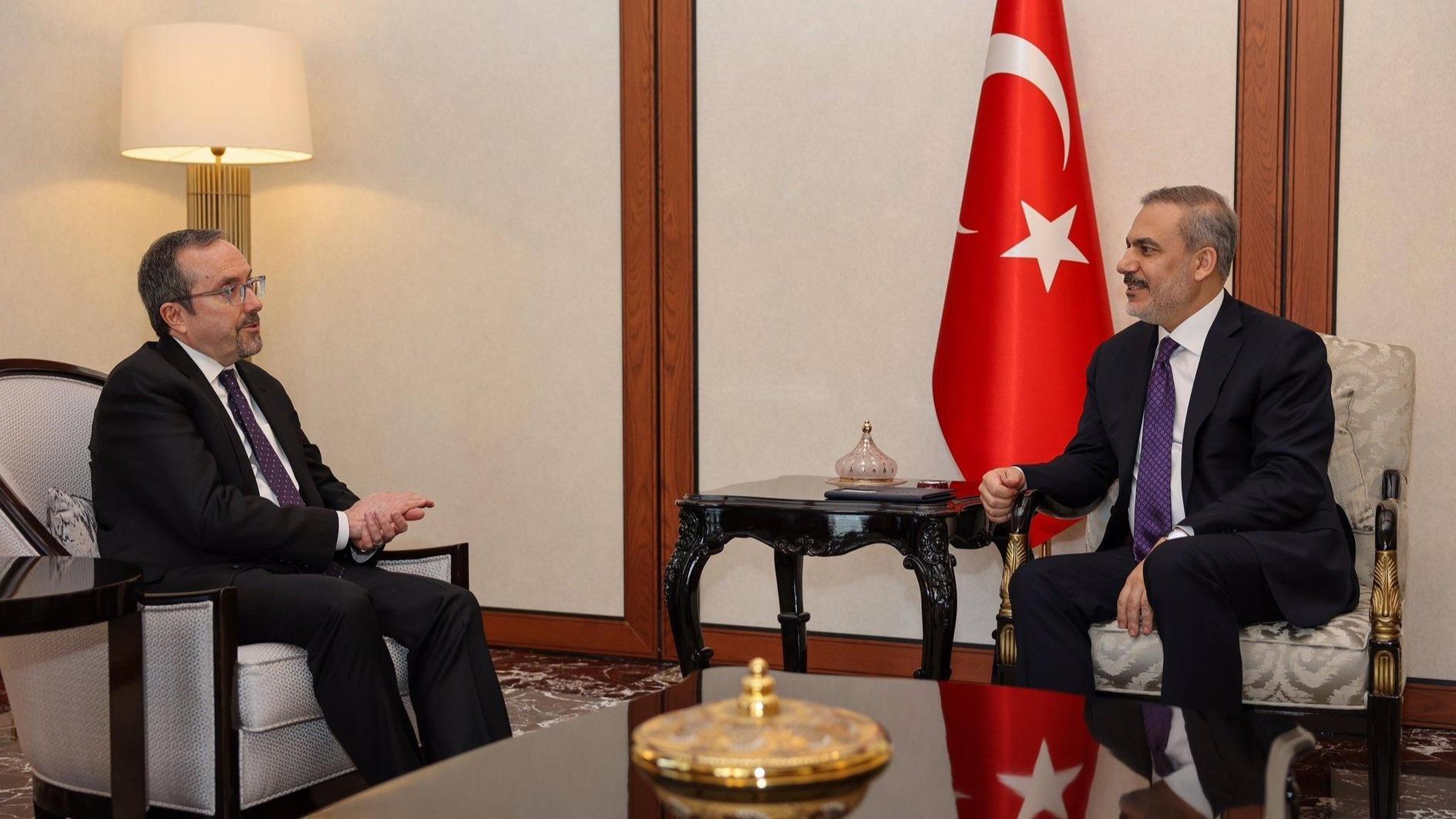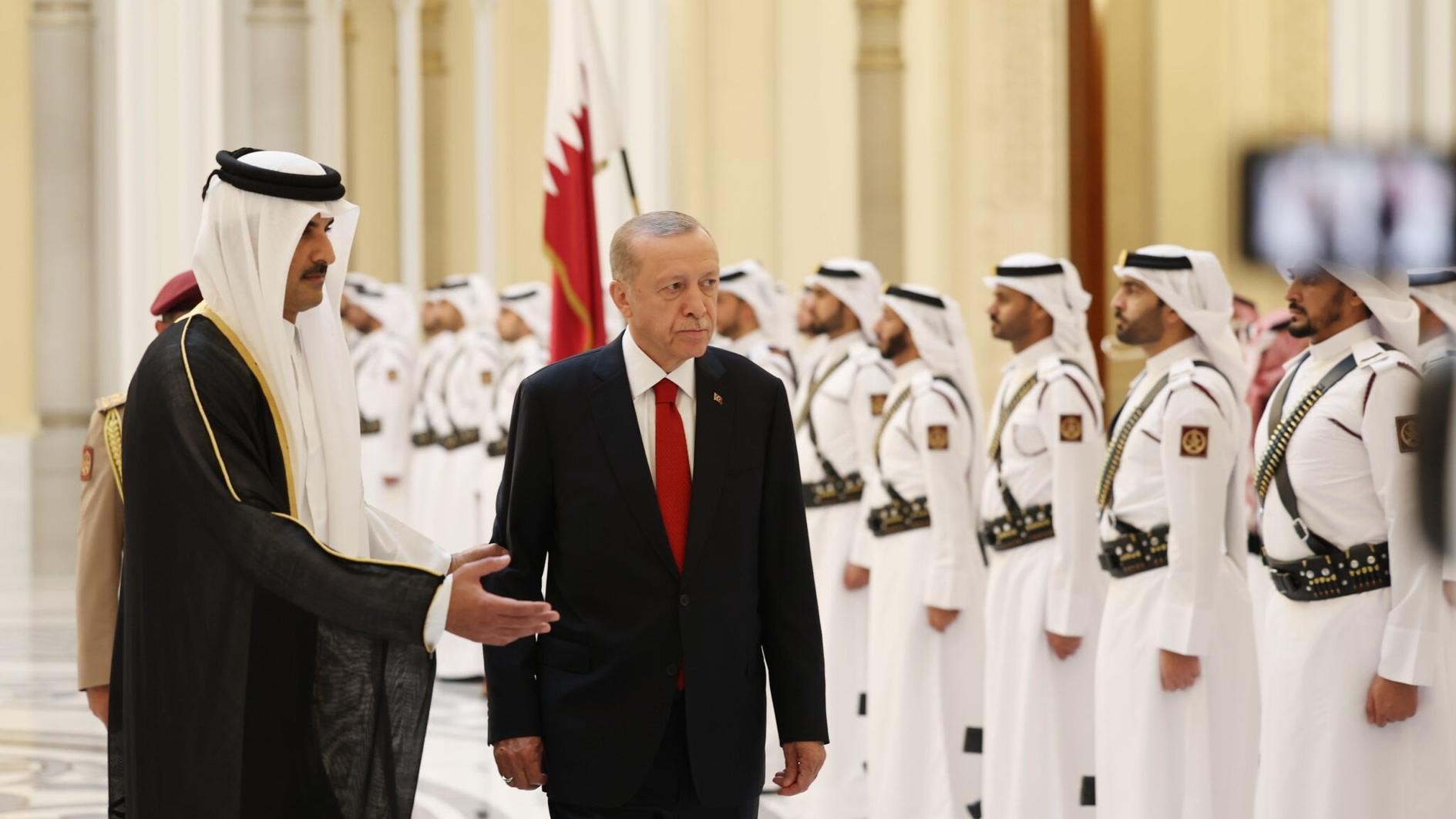Finance Minister Şimşek rules out capital controls
ANKARA

Finance Minister Mehmet Şimşek (C) answered reporters’ questions yesterday, after attending a meeting on public finance, which was organized by the the Foundation for Political, Economic and Social Research (SETA). AA photo
Turkey will not implement any sort of capital controls, Finance Minister Mehmet Şimşek has said, aiming to soothe possible investor concerns following Prime Minister Recep Tayyip Erdoğan’s hint at “alternative plans” to stem the Turkish Lira.“No restrictions on capital movements will come,” Şimşek said Jan. 30, speaking at a meeting on public finance in Ankara. He also said any changes in the floating exchange rate system were not on the government’s agenda and had not even been discussed.
Speaking to a group of reporters on Jan. 29, Prime Minister Recep Tayyip Erdoğan had said that if the Central Bank’s recent rate hike fails to protect the lira, the government may announce work on “a Plan B or a Plan C” in the coming days or weeks.
The Central Bank raised all its key interest rates at an emergency policy meeting on Jan. 29, ignoring potential political opposition.
The bank said it had tried to “front-load” its monetary tightening with this week’s rate hike, but said it may tighten liquidity further if needed, according to the record from Jan. 28’s meeting, published on its website.
“It is up to me to be patient for a while,” Erdoğan said, commenting on the hike. “We are obliged to preserve our good intentions if the return of interest rates brings positive improvement in foreign exchange currencies or a rise in the Istanbul stock exchange. But we won’t be able to preserve our good intentions if the opposite happens.”
Investment recovery hope
Concerned about the potential impact on growth, the prime minister has been vocal in his opposition to any interest rate hike recently. This has raised questions about the independence of the Bank, which has refrained from raising rates despite the lira’s steep slide.
However, speaking after the hike on Jan. 29, Şimşek played down the impact on growth of a sharp hike in interest rates, saying the economy would have suffered greater damage from a loss of faith in the Central Bank.
In his remarks Jan. 30, Şimşek repeated his calm stance and stated the government does not foresee any major threats to growth and stability, but is ready intervene if needed.
Depicting an optimistic picture for the country, which has been witnessing a political crisis that erupted after a graft probe launched into prominent figures close the government, the minister stressed they believe the local elections in March will confirm political stability.
“We will hopefully see that and we will enter a period where investments will rise again, instead of the recent uncertainty,” he said, adding that the government did not plan any tax cuts to enhance growth for now.
Şimşek noted that the government's financial policy was to prioritize flexibility against potential shocks. “However, it is early to use [tax cuts]. We don’t foresee any shocks. If they come, we will step in,” he added.
















